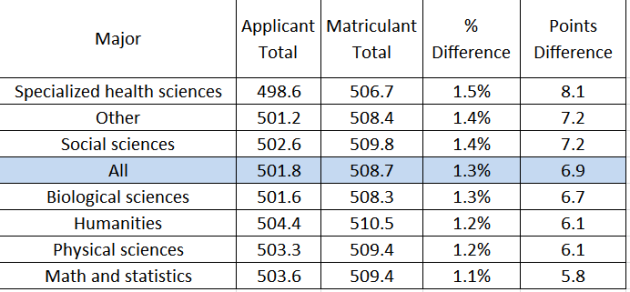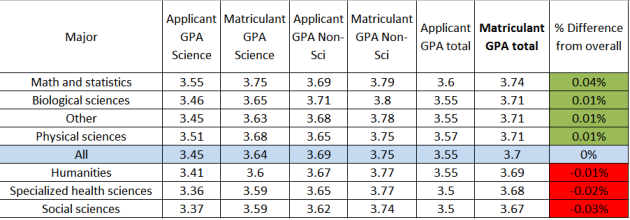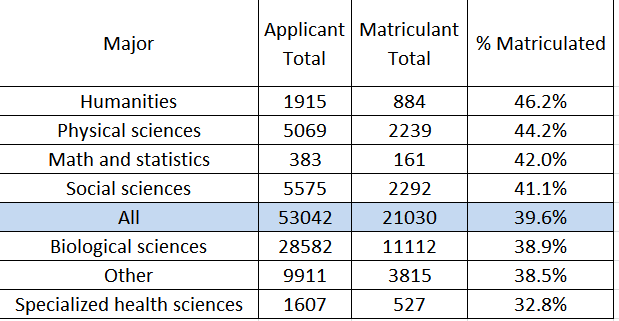My journey to medical school was longer and more arduous then I could have ever imagined. Although I was accepted on my second attempt, there were years of hard work and research that brought me to the door of medical school.
During college, a combination of extracurriculars, girls, and partying all led me astray from the path to medicine. I had to face the hard realization that my strong desire yet mediocre credentials were not enough to get me in. Post-college, I sought out a number of opportunities, from work in a non-profit to a masters program. Below I will lay out the experiences that shaped my application and eventually landed me into medical school. My hope is that my lessons will help you succeed on your path towards doctorhood!
***Disclaimer: I am not a professional consultant for medical school applicants. Each application and experience is different and the notes below are what personally helped me get there.***
1) Make smart decisions in college
College:
In college I majored in international studies, fully aware that this is not a traditional major for premeds. It was something that I was interested in and something I wanted to pursue. In f act, the easiest way to stand out on your application is your major.
Tables 1 and 2 demonstrate that applicants in the 2016-2017 application cycle whose major was in humanities tend to have slightly lower GPAs and MCAT scores.
Table 1: Applicant vs Matriculant Overall MCAT Scores based on Undergraduate Majors 2016-2017*

Table 2: Applicant vs Matriculant GPA based on Undergraduate Majors 2016-2017*

As you can see, the differences appear to be small – indicating that a science major is not necessary to matriculate.
Although it may seem that a science major is the obvious choice, there are other factors that contribute to matriculation. Below in Table 3, the major that is most likely to matriculate is a humanities major, 6% points more likely to matriculate over the average matriculation rate. Compared to the most common major, biological sciences, a humanities major is 7% points more likely to matriculate.
Table 3: Matriculation % Based on Undergraduate Majors 2016-2017*

Leadership:
When I was in college, I didn’t look at this kind of data even though it was available years ago. I focused on leadership opportunities across campus both in extracurricular clubs and my own fraternity. I thought that leadership experiences would help me stand out within a crowd of applicants, but I later realized that most matriculants are leaders. Leadership positions are now necessary to be a qualified applicant, just like the hours of health-related volunteering. What helped me stand out as an applicant with mediocre academic numbers, was my master’s degree, research project, and extensive experience with a non-profit organization.
2) Be realistic, make a Plan B
MCAT:
My MCAT score was not very high, even after multiple attempts. My first attempt at taking the MCAT was after studying while abroad, while the second attempt was after taking a Kaplan course that following summer. Both of these attempts were during college, a period in my life when I never dedicated myself to a structured study regimen. Both times, my scores were below the mean MCAT score.
I was realistic about my overall application so I committed to taking the test once more. I attempted my third and final time after the first year of my master’s program, during which I finally established a regimen to sit down and focus on studying for hours at end. Though it took three attempts over three years, I was finally able to score above the mean matriculating score.
Since my college GPA and initial MCAT score was below the mean for the average matriculant, I looked for ways to improve my application. My premed advisor in college wasn’t helpful – I was told my credentials were not strong and that was that. I enrolled in an EMT course during my senior year as a Plan B after graduation.
I scoured StudentDoctorNetwork (SDN) for advice. As you might have already heard, SDN is notorious for trolls but there are lots of precious nuggets as well. Having already completed the prerequisite course, I found an expensive but promising route.
Special Masters Program:
Special Masters Programs (SMP) exist mainly to boost your academic qualifications for medical school. If you already completed your prerequisite courses, have an average MCAT, and your undergraduate GPA is not above 3.5, this program is for you – I would call this the “not quite” range. Academic improvement always helps, but so does aptitude from the start! The main difference between an SMP and a Post-baccalaureate program are the courses that you take. Post-bac programs are used to take the prerequisite courses, whereas SMP are medical school courses. Both programs will help you improve your MCAT score.
I gained several things from the SMP:
- A strong work ethic in order to succeed in medical school courses, especially as my “second chance.” As I mentioned earlier, this new mindset helped me to do well on my final MCAT attempt.
- Stronger premed guidance, given that the director and my advisor are faculty of a medical school.
- An overall stronger application with a significant research project, demonstrating my understanding of lifelong learning in medicine
The SMP I went with was Boston University (BU) School of Medicine. I chose this program for a few reasons:
- “Higher” tier medical school
- Boston area = “prestigious” hospitals to work with
- Raw chances:
They report that 70% of the graduates are admitted into a US medical school, with 20-30 students in the program accepted into BU. With 180 students per medical school class, that means that just being in the BU SMP program gives you a 17% chance of being in their next entering class. Given the 2.5% matriculation rate of US medical schools, just getting into the SMP already gave me almost 7 times the chance of getting into medical school.
3) Be passionate!
Work:
During the SMP, I got involved with a nonprofit called Health Leads. It provided a unique opportunity for students to work directly in patient care. The work resonated with me so I put in more hours, and eventually networked enough to land a job at the main office. While I was applying to medical school after my SMP, I spent a gap year working for Health Leads. This experience left me with an unfamiliar but resounding sense of passion and a great story, both of which are important to have as an applicant.
In summary:
Make smart decisions about what you get involved in. Find good mentors who inspire and guide you down the path you desire. Find a passion early and pursue it wholeheartedly – it will help you build a great story as an applicant. Remember to be realistic with your application – have a plan B,C, D, etc. Only the most extenuating circumstances can overcome mediocre academic performance. You are most likely not a shining star, and the sooner you realize it, the quicker you’ll get into medical school. You have to work hard to make it into medical school, and even harder to survive it.